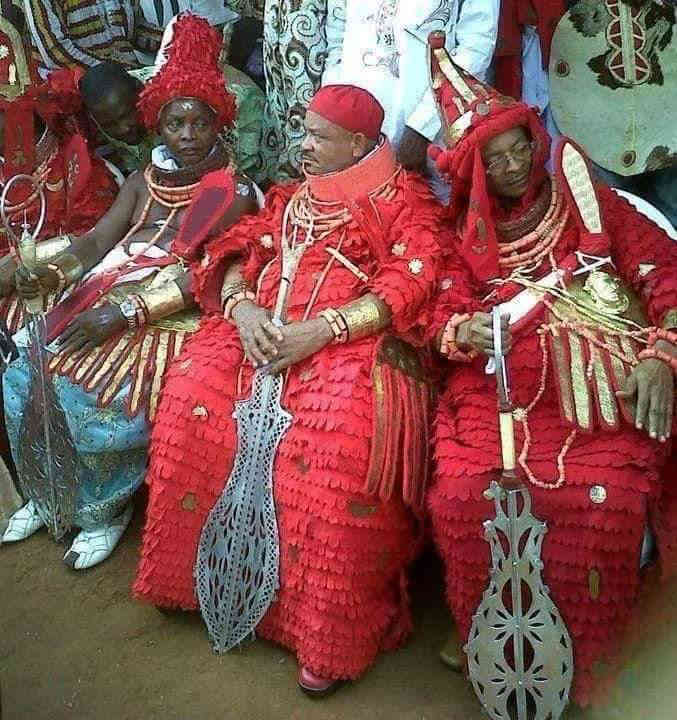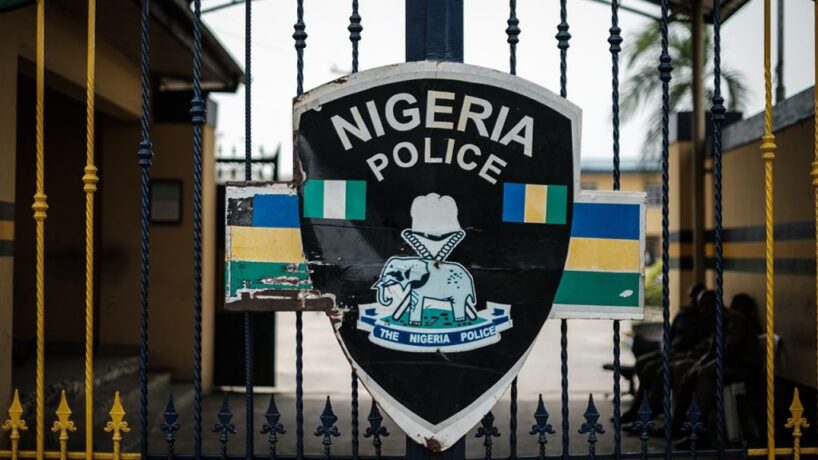Full List of ethnic groups in Edo State has been highlighted here on Ejes Gist News Nigeria.
Edo state is often perceived as being solely inhabited by the Binis and Esans, however, this belief is not entirely accurate. The land is currently inhabited by nine additional ethnic groups. In 1991, the state of Edo was established with Benin City serving as its capital. Nigeria boasts several states whose ethnic groups share many similarities with those from other regions, and this particular state is no exception. The mid-western region of Nigeria is home to a state that ranks as the 22nd largest in the country.
Below are the ethnic groups in Edo state.
The Okpamheri ethnic group is a community found in Edo State, Nigeria.
The Okpameri people are a community located in the Akoko-Edo local government area of Edo state. The Okpameri community is renowned for their peaceful and hospitable nature, with the majority of their population engaged in farming activities.
Despite Christianity being the predominant religion among the Okpameri people, a minority of individuals continue to observe their traditional religious beliefs. The staple food of the Okpameri community is pounded yam and vegetable soup.
The Uneme ethnic group is a community found in the northern part of Edo State, Nigeria.
Uneme is a community located in Afemailand. The Akoko region is currently occupied by a group of people consisting of six distinct communities. According to local accounts, the Uneme people are said to have migrated from the old Benin kingdom following a disagreement with the Oba.
The skilled blacksmiths in this community are predominantly of the Christian faith. Their primary source of sustenance is pounded yam and soup.
Still on full List of ethnic groups in Edo State
The Yoruba ethnic group is one of the largest and most influential ethnic groups in Nigeria. They are predominantly found in the southwestern part of the country, with significant populations in neighbouring countries such as Benin and Togo. The Yoruba people have a rich cultural heritage, with a unique language, religion, and traditional customs.
They are known for their artistic and intellectual achievements, including their contributions to literature, music, and philosophy. Despite facing various challenges over the years, the Yoruba people have remained resilient and continue to play a significant role in shaping Nigeria’s cultural and political landscape.
The Yoruba ethnic group, situated in Edo state, is considered a minority group. The Yoruba community in Edo state appears to be facing political and economic challenges, unlike their counterparts in other states. The Yoruba ethnic group in Edo State is situated in a region that is in proximity to Ore, a town located in Ondo State. The Yoruba language spoken by these individuals is believed to have been influenced by the Bini language. Despite being predominantly Christians, some Yorubas in Edo State still adhere to their traditional religion. The individuals in question are primarily engaged in agricultural and commercial activities. It is reported that their diet consists mainly of soup and processed yam flour.
The individual identifies as being of Igbo ethnicity. The Igbo community in Edo state is predominantly composed of the Igbanke people, who are commonly referred to as Ika Igbos.Delta is also a location where they have been discovered. The Igbos have a rich history that dates back to the 15th and 16th centuries when they were victims of slave raiders from Benin. Despite adopting some cultural practises from the Benin people due to proximity, the Igbos have managed to preserve their language, which remains distinctly Igbo. In Igbanke, there exist multiple communities that bear names of Benin origin. The location of the establishment is in the Orhionmwon Local Government Area of the state. The monarchy of the country is referred to as “EZE”, which stands for a specific title.
In a recent gathering of traditional rulers in a Nigerian community, the following names were mentioned: Eze Ake, Eze IdumuOdin, Eze Igbon, Eze Oligie, Eze Omolua, and Eze Ottah. These individuals are recognised as prominent leaders within their respective communities.
The Esan ethnic group is a prominent community in Nigeria, known for their rich cultural heritage and traditions.
The Esan people, hailing from Edo state, are known to be one of the most feared ethnic groups. It is likely that their adherence to tradition is deeply ingrained. The Esan people are situated in the Edo central senatorial district of present-day Nigeria.
The Esan ethnic group is comprised of approximately 35 distinct kingdoms. The Bini people bear a striking resemblance to them. The Esan people primarily rely on farming as their main source of livelihood. Christianity is a prevalent religion among the members of this ethnic group.
The Benin ethnic group is a prominent community in West Africa.
The Benin ethnic group is a notable Nigerian tribe that once held the status of an empire. The Bini people are primarily located in Benin City, which is situated in the contemporary Edo state. They have gained notoriety for their exceptionally potent malevolent abilities. It is commonly believed that the average Bini man possesses a certain level of spiritual fortitude. The fear and apprehension towards them is palpable among individuals belonging to different ethnicities.
Benin’s population consists mainly of farmers who practise Christianity as their predominant religion. Despite the prevalence of Christianity among the Bini people, traditional worship remains a significant aspect of their culture. Egusi soup and pounded yam are among their preferred dishes.
The Owan ethnic group is a Nigerian tribe located in the Edo State of Nigeria. They are known for their rich cultural heritage and traditional practises, which have been passed down through generations. The Owan people are predominantly farmers and traders, and their economy is largely based on agriculture. Despite facing various challenges, such as poverty and lack of access to basic amenities, the Owan people have managed to maintain their unique identity and continue to contribute to the cultural diversity of Nigeria.
The Owan ethnic group, a minority in Edo state, is a distinct community with its own unique cultural heritage. The Afemai language, spoken by the Owan people, is closely related to other Edo languages.
The Owan people are the predominant ethnic group residing in the Owan local government area. Due to their relatively small population, they are not considered a politically significant ethnic group. The community of Owan, who are predominantly Christian, engage in farming as a means of livelihood.
The Etsako ethnic group is a Nigerian tribe located in the Edo State of Nigeria.
The Etsako ethnic group is a prominent community that resides in three local government areas within the Edo state region. The three local government areas in question are Etsako Central, Etsako West, and Etsako East. According to recent data, Etsako boasts the largest Muslim community in Edo state.
There are several other ethnic groups that exist in our society.
The Ebu ethnic group is a community that resides in a particular region.
Other ethnic groups are ;
- The Iru people.
- The people of Usen
- The Ekpon people.
- The Ijaw people.
- The Oza people.
Thanks for using our platform to learn about the Full List of ethnic groups in Edo State, Nigeria.





